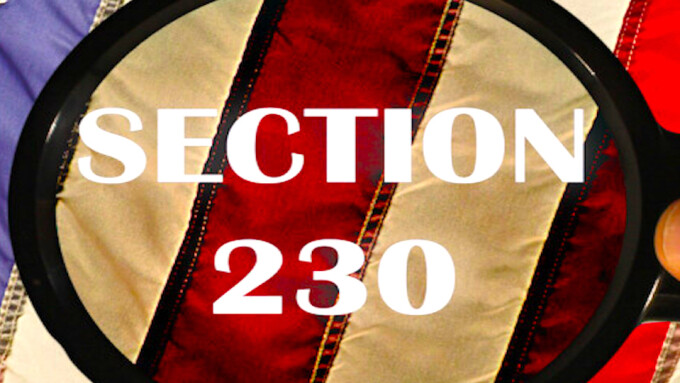WASHINGTON — The U.S. Supreme Court today heard oral arguments on the first of two important cases concerning online speech, content moderation and Section 230 protections.
Today’s oral arguments concerned the case Gonzalez v. Google, in which the internet giant is being sued by the family of one of the victims of a 2015 terrorist attack in Paris. The family of Nohemi Gonzalez claims that Google’s YouTube service violated the Anti-Terrorism Act by recommending ISIS videos to users through its algorithms.
As XBIZ reported, the plaintiffs are looking for SCOTUS to legitimize a carve-out of Section 230 protections regarding recommendation algorithms.
The lawyers for Gonzalez’s family have previously argued, “Whether Section 230 applies to these algorithm-generated recommendations is of enormous practical importance. Interactive computer services constantly direct such recommendations, in one form or another, at virtually every adult and child in the United States who uses social media.”
Google’s counsel warned in a previous brief against adopting a reading of section 230 “that would threaten the basic organizational decisions of the modern internet.”
Section 230 observers are watching the current hearings very closely, especially because Justice Clarence Thomas has repeatedly asked for Congress to clarify the immunity provisions of Section 230.
In a March 2020 opinion, Thomas asserted that if Congress fails to clarify Section 230’s scope, then SCOTUS “should do so in an appropriate case.”
Several Justices Appeared 'Concerned' Across Ideological Lines
According to CNN legal analysts, the Supreme Court justices appeared “broadly concerned about the potential unintended consequences of allowing websites to be sued for their automatic recommendations of user content.”
During the nearly three-hour-long hearing, all nine justices questioned attorneys for both parties about “how the court could design a ruling that exposes harmful content recommendations to liability while still protecting innocuous ones,” CNN reported.
The attorney for the Gonzalez family argued in favor of narrowing Section 230 protections, claiming that this “would not lead to sweeping consequences for the internet,” the report continued.
Some of the justices, however, expressed concern that if the court ruled against Google, a wave of lawsuits could lead to a major disruption of the entire internet.
“Lawsuits will be nonstop,” Justice Brett Kavanaugh said at one point.
Attorney Eric Schnapper, representing the plaintiffs, argued that “most suits would likely be thrown out anyway,” CNN reported.
Even so, Justice Elena Kagan warned, “You are creating a world of lawsuits. Really, anytime you have content, you also have these presentational and prioritization choices that can be subject to suit.”
Narrowing Section 230 in the name of a few terrorism-related cases, Chief Justice John Roberts said, would unleash an untold number of future lawsuits against websites “alleging antitrust violations, discrimination, defamation and infliction of emotional distress, just to name a few,” the report noted.
Anti-porn crusaders like NCOSE and Laila Mickelwait have long argued for a radical narrowing of Section 230 protection for websites with sexual content, in order to allow precisely the onslaught of lawsuits that both conservative and liberal justices warned about today.
Kagan elicited laughs when she admitted, “We’re a court. We really don’t know about these sorts of things. These are not, like, the nine greatest experts on the internet.”
If Congress wants a more narrow set of protections, she asked, “Isn't that something for Congress to do? Not the Court?”
Section 230 Expert 'Cautiously Optimistic' About First Hearing
Section 230 expert Jess Miers, legal advocacy counsel at Chamber of Progress, told XBIZ she is “cautiously optimistic about today's arguments. It was clear that the justices appreciate how important it is to get this right.”
The court, Miers added, “seemed to appreciate that algorithms and content moderation are essential to the way the internet functions today and that attempts to create imprecise legal and technological distinctions could have irreparable effects on the modern web.”
Still, Miers remains concerned that the court will “inadvertently undermine Section 230 through various line-drawing exercises — such as limiting the scope of the immunity to ‘neutral tools.’ Any such line-drawing will effectively negate the immunity's value for internet services and its users.”
Tomorrow the Supreme Court will hear Twitter v. Taamneh, a case that addresses whether the anti-terrorism laws underlying both cases can even be applied to content moderation, even before any Section 230 protections can be invoked.







